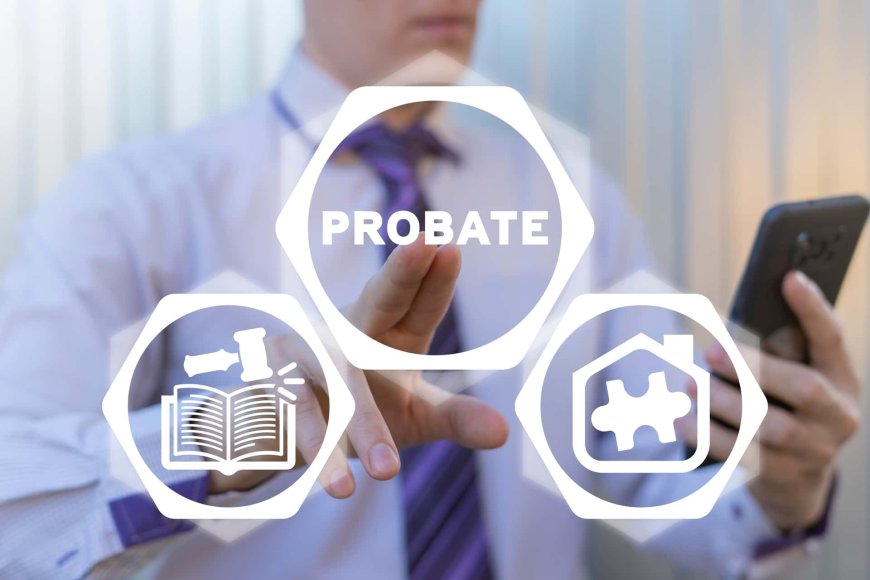Probate Loans vs. Probate Advances

When you're expecting an inheritance but probate is holding things up, it's natural to look for ways to access funds sooner. Two common options are probate loans and probate advances. While they may appear similar at first glance, they function very differentlyand the choice you make can have long-term financial implications.
In this blog, we explain how each option works, highlight their key differences, and help you decide which one may better fit your situation.
Why Probate Funding Options Exist
Probate is the legal process of distributing a deceased persons estate, and it often takes monthssometimes even longer. During this time, heirs typically cannot access their inheritance.
For those who need funds sooner, probate loans and probate advances offer potential solutions. While both provide early access to an expected inheritance, they differ in structure, risk, and repayment.
What Is a Probate Loan?
A probate loan allows you to borrow money based on the value of your anticipated inheritance. It's structured like a traditional loan: a lender provides funds upfront, and you agree to repay the loanwith interestafter the estate is settled.
Key Points:
-
Involves a formal loan agreement
-
Often includes credit checks and legal documentation
-
Interest may accumulate until the loan is repaid
-
Repayment is typically made from your estate distribution
A probate loan may be appropriate if youre looking for access to a larger amount of funds and are prepared to handle the repayment terms.
What Is a Probate Advance?
A probate advance is not a loan. Instead, its a cash advance provided in exchange for the rights to a portion of your future inheritance. There are no repayments, no interest, and typically no credit requirements.
Key Points:
-
Considered a one-time transaction
-
The company providing the advance collects from the estate directly
-
You are not responsible for repayment, regardless of estate delays or complications
-
The advance amount is generally less than the full inheritance value
This option is often ideal for beneficiaries who want a faster, simpler process and prefer to avoid debt or repayment obligations.
Comparing Probate Loans and Advances
| Feature | Probate Loan | Probate Advance |
|---|---|---|
| Type | Traditional loan | Cash advance (assignment of inheritance) |
| Repayment Required? | Yes, with interest | No |
| Credit Check? | Typically required | Not required |
| Interest Charges? | Yes | No |
| Who Takes the Risk? | You (the borrower) | The funding company |
| Time to Receive Funds | May take longer due to approvals | Usually quicker (often within a few days) |
Which Option Is Right for You?
Should I choose a probate loan or a probate advance?
The right choice depends on your current needs, financial comfort level, and how much of your inheritance you're willing to part with in exchange for early access.
A Probate Loan Might Be Better If:
-
Youre comfortable with a loan structure and repayment
-
You want to access a larger portion of your expected inheritance
-
You have strong credit and dont mind a longer approval process
A Probate Advance Might Make More Sense If:
-
You want to avoid debt entirely
-
You need fast access to funds with no repayment
-
You dont want your credit checked or impacted
In either case, its critical to understand the terms and ensure you're making the best decision for your financial well-being.
Frequently Asked Questions
? Will either option affect other heirs?
No. Both probate loans and advances apply only to your individual share of the estate.
? What happens if probate is delayed?
With a loan, interest may continue to accumulate. With an advance, delays wont impact you directlythe funding company assumes that risk.
? Is legal advice necessary before signing?
Yes. Consulting a probate attorney is highly recommended to ensure the agreement is fair and that your inheritance is protected.
Final Thoughts: Choose With Confidence
Whether youre considering a probate loan or a probate advance, understanding the key differences can help you avoid unnecessary risk and financial strain. Each has its place, but the best option will depend on your personal circumstances, priorities, and financial goals.
Speak With a Probate Attorney Before Moving Forward
At The Law Office of Mary King, P.L., we help beneficiaries understand their rights and make informed decisions about probate-related financial options. Before signing any agreement, let our team guide you through the legal implications and ensure your interests are fully protected.





































